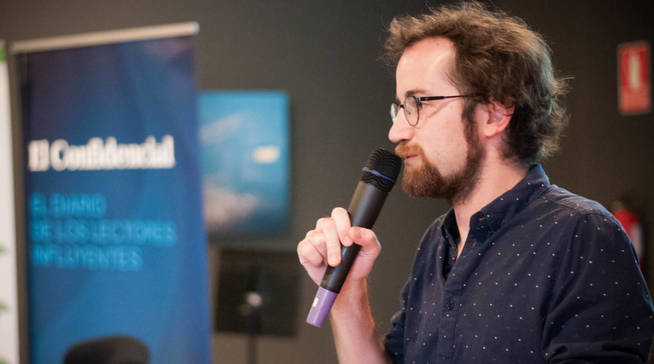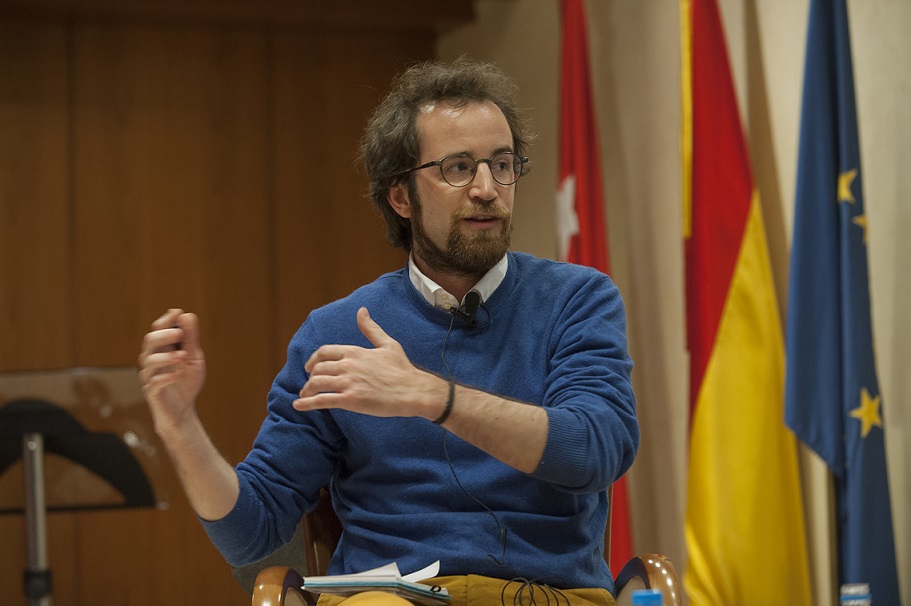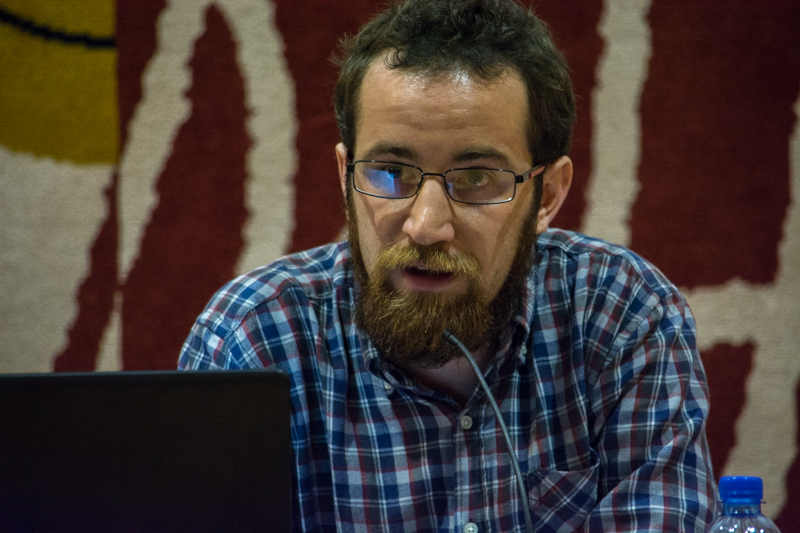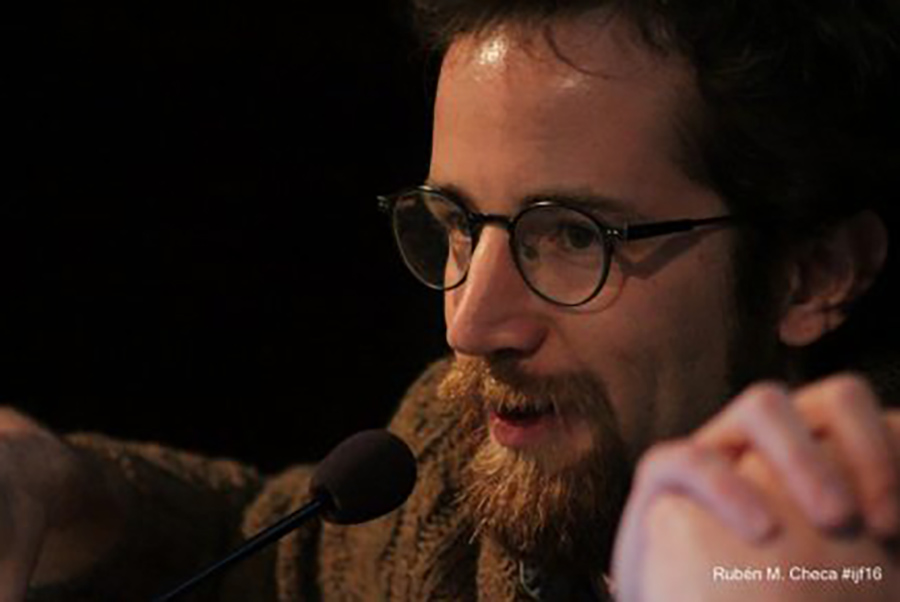After Studying Spanish Philology in Italy, Daniele Grasso decided to move to Spain directing his first steps in journalism as a freelancer. Since data journalism crossed his path in 2011, success has not separated from him. He has collaborated with ‘LuxLeaks’, ‘SwissLeaks’ and ‘Paradise Papers’. In addition, he won the Pulitzer Prize as a member of the ‘Panama Papers’ team. Finally, he is a member of ‘GenerationE’ and ‘The Migrants Files’, the first European data journalism projects.
Clearly, the future of journalism is related to cooperation and data. However, who can be an investigative journalist in Spain?
Daniele Grasso, a Data Journalist at the 3rd most read digital media outlet in Spain, ‘El Confidencial’, is answering this question.
Iravaban.net is starting a new series of interviews with the world’s most prominent investigative journalists.
– How were those first years as a journalist in Spain? What were your first experiences?
– If you want to become a journalist in Italy, it doesn’t really matter what you study as there are many Master degrees to specialize in journalism. My first connection with the journalism world was in Spain. In the beginning I didn’t cover investigative topics. I started working as a freelancer for Italian newspapers and sell stories to them because Spain was poorly covered at this time from a media journalism point of view. An important point for my career was the 15M movement in 2011 (+ short explanation about this movement from the Armenian version); Spanish media didn’t have any contributors here in Madrid and I started selling them the news. Thanks to that, I started working with them. However, my first steps weren’t directed at investigative journalism but to journalism in general.

source: https://www.elconfidencial.com/comunicacion/2017-09-05/curso-verano-el-confidencial-unia_1438459/
– What was your ultimate goal? Did you want to become an investigative journalist?
– No, my first aim was just to become a journalist. I was working as a journalist in a newspaper and trying to sell stories to the media as a freelancer. However, I started to feel interested in the data world and understand the possibilities and benefits that data gives to journalistic analysis and in general. Thus, I decided to become specialized in data investigative journalism. The turning point of my specialty was to study in the first master degree in Europe exclusively devoted to data and investigative journalism. It is actually here, in Madrid.
– In your experience as a journalist, how does the Citizen Security Law of Spain, known as “Ley Mordaza”, affect daily journalistic work? Does it really reduce the freedom of press and speech in Spain?
– I don’t think that it really affects or creates a bad impact in journalism. To avoid misunderstanding, the law is awful; it is not a law that fits the twenty-first century because it puts barriers on the freedom of expression not only for journalists but also for any other person carrying a phone or any media to be used for communication. It is clearly a problem for citizen journalists who work covering big demonstrations. However, in our daily data work and journalism it didn’t have any effect, I mean, in the daily data work of investigative journalism the law almost didn’t change anything.
– Investigative journalists in Armenia are dealing with a political environment that does not facilitate their work. We would like to ask you the following as a member of the board of directors of the Investigative Journalism Association (API): What are the mechanisms used by API to boost investigative journalism in Spain and what would be the strategic plan to enhance investigative journalism in the country?
– The API was officially founded in November 2017; it has just a four-month life, it’s brand new. The main idea that we want to develop during this year is to provide support or protection to journalists from a legal point of view. Thus, the idea is to fund lawyers that can work “Pro bono” with journalists; not only in criminal cases but also in civil cases and cases that have to deal with the transparency law in Spain.

source: https://www.apmadrid.es/comunicado/daniele-grasso-la-desafeccion-de-la-sociedad-hacia-los-medios-se-inicio-con-el-15m/
In addition, the Association is also going to present a series of tools that can help in the work of investigative journalists: from data analysis tools to installing secure boxes to receive information from anonymous places, using books and manuals to insure conversations.
We aim to be not only a central point where journalists can go for support from a legal and security point of view but also a central point where journalists can exchange experiences. For that matter, we aim to set some quality standards to be accepted at the association of investigative journalists. For example, to give a period of two-three days to the person affected by the information of an investigation so that he can comment before its publication. Simple requirements like this one make us understand that we all have the same values.
– Do you have successful examples of cooperation between lawyers and investigative journalists in Spain?
– I have examples of on-going collaboration but we still don’t know if they are going to be successful.
For your information, the new transparency law covers requests for information and access to public documents. Thus, when the government denies a request or does not supply sufficient information, it is possible to appeal to the organ tasked with overseeing compliance with the law and even appeal its decisions in court.
We have a couple of cases where there are journalists fighting in court for having this kind of information. In these cases both the journalists and the lawyers are actively cooperating and they have already won the first round.
On the other hand, lawyers and journalists also collaborate in case of personal threats while investigating. All journalists working in newspapers usually have lawyers interceding for them in case of receiving pressure from someone involved in investigations.
– What is your opinion on data journalism, how does it change the world of journalism, what role does it play in Spain?
– I think that in a couple of years we are not going to speak about data journalism but just journalism in general, period. Journalism without data will no longer have a meaning. Data journalism has made journalism stronger as it is based on data and not just words. The most important aspect of data journalism is related to global collaboration. Data journalism enables collaboration, global networks and investigations as you have seen, like Panama or Paradise Papers, based on data analysis and journalism. In order to understand the global economy and global market, journalism must also be global.

source: https://periodismo.umh.es/2015/03/25/daniele-grasso-y-eva-belmonte-destacan-la-importancia-del-periodismo-de-datos/
– What are the main challenges while using data journalism?
– On the one hand, there is a lack of data literacy; not every journalist is able to work with data because they are not used in normal news. On the other hand, there is the data safety. It is very important to know how to deal with data; we have big databases and it is crucial to know how to store the information and also how to share it with colleagues in a secure way. Nowadays, a leak is a hundred times more dangerous than years ago; we have much more data, thus also more risks. In those Panama Papers investigation we had the support of the ICIJ platforms ensuring our work and keeping all the information in secret.
– Finally, may we ask you if you have ever been threatened in your life because of being an investigative journalist?
– No, Spain is quite a secure country to be an investigative journalist. I have only been threatened by people who wanted to bring me to court. I have already been in courts three times because of my stories and I won all the cases. As far as I know, it is very rare for an investigative journalist to be threatened in Spain.
José Nicolas Dominguez Mendoza
EVS Volunteer at the Armenian Lawyers’ Association















